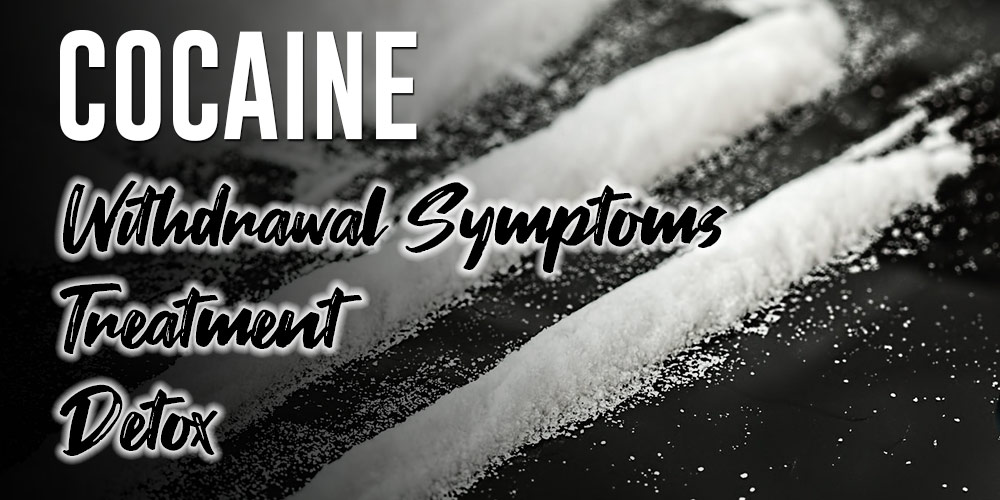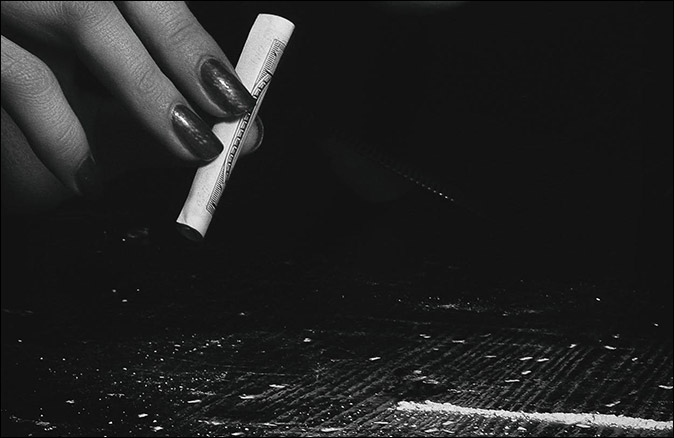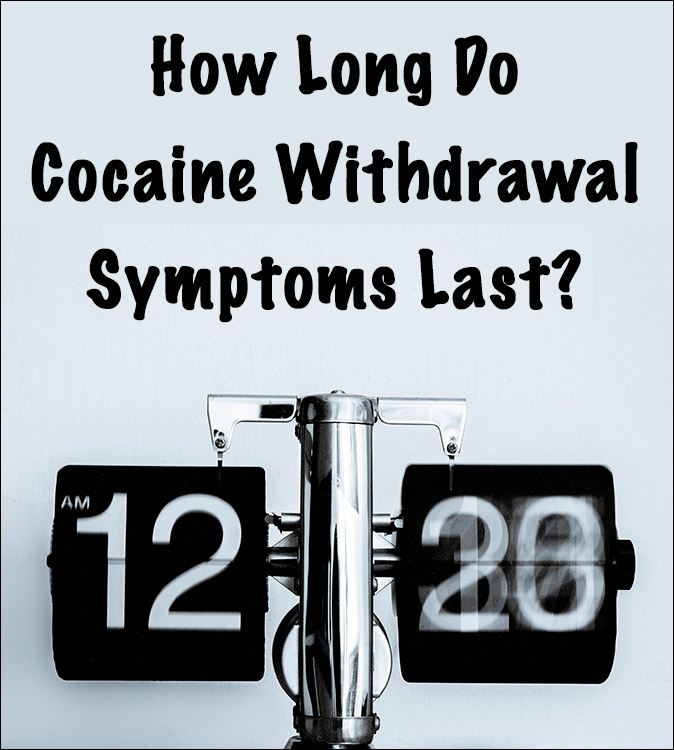
Giving up a stimulant substance like cocaine has a complex psychological effect on the recovering addict. As such, people with a history of depression, bipolar, anxiety or suicidal thoughts who are giving up a cocaine habit need to get help with detox in addition to addiction treatment to overcome the withdrawal symptoms.
People that have a dual-diagnosis and are using substances combined with a co-existing mental health disorder are particularly at risk during detox. So it’s crucial they seek professional help for cocaine addiction treatment, instead of trying to do it alone.
A person with a dependence to cocaine going through withdrawal is particularly susceptible to depression and other mental health issues. Depression and addiction can prolong the dependence and impede healing and recovery.
There has been an upward trend in cocaine use in the United States. In 2017, 40.6 million individuals said that they had used cocaine at least once in their lifetime.
Part of the increase in cocaine use is related to the opioid epidemic, as many users who are addicted to heroin and opioids have turned to cocaine to offset the effects of opiates. It’s even more alarming that some of the cocaine supply is being cut with fentanyl to make it more powerful, and ultimately more dangerous too.

Cocaine Street Names
Cocaine use was in its heyday in the late 1980s when the economy was booming. It was a party drug associated with having money and typically snorted through $100 bills.
For the past two or three decades its use has dwindled since the 80s, until the current resurgence, but it has almost always kept many of the same slang terms or street names, with a few new ones coming to light.
Common Cocaine Street Names Include:
- Coke
- Blow
- Nose Candy
- Rail
- Yeyo
- Line
- Flake
- Bump
- Snow
Bruce Parry Explores How to Make Cocaine
Many people describe cocaine as “a drug made from the coca plant.” The full name for the plant is Erythroxylum coca. While it is true the drug is made from a plant, cocaine is also a dangerous concoction of toxic chemicals that most users don’t know about.
To extract cocaine from the coca leaves, a deadly process is required. This process was publicized on the web by Bruce Parry for the BBC who traveled to the Amazon to explore how to make cocaine.
It’s alarming for most users to find out how cocaine is made. The fine white powder is thought to be classy and sophisticated by many. But if they knew what went into the making of cocaine, most people would see an entirely different story.
Cocaine is extracted from the coca leaves via a complex process that begins with the use of chlorine, bleach, and kerosene, before pouring sulfuric acid over the leaves. Sulfuric acid is an extremely strong and corrosive substance that can cause severe burns and tissue damage if it comes into contact with the skin.
The mixture is then doused with other chemicals and left to marinate to draw cocaine from the leaves. From there it is sent to laboratories for further processing that will turn it into a powder that resembles what is purchased on the street.
Cocaine Withdrawal Symptoms
The “rush” or “high” from cocaine is short-lived – which means that people need more and more to get the euphoric high they are searching for. This quickly builds up a tolerance for cocaine by rewiring the brain, making it difficult to feel happy and causing intense cravings for the drug, frequently leading to addiction.
Most cocaine users say the first hit is the best, and after that they are simply chasing the feeling of that first line, which never returns.
Unlike other drugs suchas alcohol, opioids and benzodiazepines, withdrawal from cocaine is less intense physically. On the other hand, psychologically there is an increased risk for suicide.
The Most Common Symptoms of Cocaine Withdrawal are as Follows:
Psychological Cocaine Withdrawal Symptoms
- Cocaine cravings
- Increased appetite
- Fatigue and exhaustion
- Anhedonia (loss of pleasure or interest in other activities)
- Depression
- Agitation
- Restlessness
- Nightmares
- Anxiety
- Suicidal thoughts
- Difficulty concentrating
- Slowed thinking
Physical Cocaine Withdrawal Symptoms
- Psychosexual dysfunction
- Slowed physical activity
- Chills
- Tremors
- Muscle ache
- Nerve pain

How Long Do Cocaine Withdrawal Symptoms Last and When Do They Begin?
Cocaine withdrawal symptoms can be both psychological and physical. The physical withdrawal symptoms can begin within two hours of using cocaine.
The psychological symptoms of cocaine withdrawal can be continuous and have no set beginning or endpoint. Repeated cocaine use alters the neurochemistry of the brain, making the cocaine user crave it to enjoy life. Without it, they have a difficult time being happy or experiencing pleasure.
Cocaine has a short half-life, which means that withdrawal symptoms can start as soon as 90 minutes after the last dose.
Cocaine withdrawal symptoms are usually short-lived and will normally subside within one to two weeks. However, the psychological effects can last much longer if suitable therapy is not carried out.
A person who is recovering from a cocaine dependence or addiction will need to learn how to live a sober and happy life free from drugs. This means rekindling or finding their passion in life, rather than leaning on drugs to find temporary happiness.
4 Factors That Influence Cocaine Withdrawal
Several factors can impact the length of time and complexity of the recovery process for a cocaine addict.
The following 4 factors are the most common that influence cocaine withdrawal:
1. Polysubstance Abuse
Drug treatment and detoxification are more complicated when a person is addicted to two or more drugs, also known as polysubstance abuse. People addicted to cocaine often use other drugs at the same time, which can make the recovery process longer.
2. Accumulation of Drugs in the System
Prolonged use of cocaine can result in an accumulation of drugs in the body. A person who has been taking cocaine for a shorter duration will experience less severe withdrawal symptoms that will subside more quickly. Someone who has been taking cocaine for a longer period of time will normally take longer to recover.
3. Amount of Cocaine Taken
Continual use will lead to a build-up of cocaine in the system. However, this is also impacted by the amount taken at any given time. If large doses are taken, the body will find it harder to recover when compared to someone who takes smaller doses.
Chronic, long-term users of cocaine build up a high tolerance to the drug and must take more of it to feel the same effects. This has a profound impact on the structure and function of the brain as addiction sets in.
4. Dual Diagnosis
Many people use cocaine to cope with underlying mental health issues such as stress, depression, PTSD, or others. Addiction combined with mental health disorders is known as a dual diagnosis or co-occurring disorder.
If there is a co-occurring medical condition then the length of time to recover can be longer and the recovery process can be more complex.
Cocaine Detox and Treatment
A medically supervised detox is usually required as the first step of treatment for someone who has been using cocaine for a long time, or if they have been taking large amounts to get high.
After detox has been completed, a formal cocaine addiction treatment program can begin. The treatment process requires a dedication to recovery because the transformation process can be uncomfortable for some people. The good news is that recovery is possible and living a happy sober life will become much easier over time.
Treatment usually includes cognitive and motivation behavior therapy, relapse prevention, and sometimes family therapy.
If a co-occurring condition is present, dual diagnosis treatment is necessary to overcome the combined addiction and mental health issues for recovery to be successful. This can take longer to accomplish as both conditions must be treated together.
Cocaine withdrawal symptoms, treatment and detox can be almost impossible for some people to overcome on their own, and they won’t be able to recover without professional help.
Seeking treatment early for cocaine use or addiction offers the best chance of recovery instead of waiting for things to spiral out of control.
Related Posts
- High-Functioning Anxiety Symptoms and Treatment
Anxiety disorders are the most common form of mental illness in the United States. They…
- Wet Brain Syndrome Symptoms and Alcoholism Risks
Wet Brain Syndrome, also known as Wernicke-Korsakoff Syndrome (WKS), is a severe condition that occurs…
- Is Addiction a Disease or a Choice?
Is addiction a disease? Is alcoholism genetic? Or is it simply a personal choice? These…
